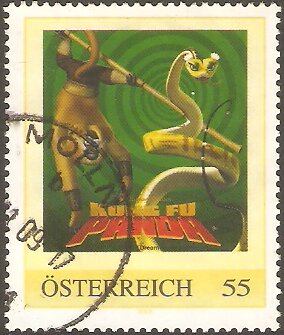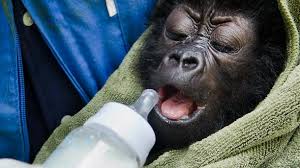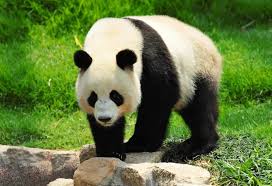Stamp: Kung Fu Panda (Personalized and Private Mail Stamps 2008)
Kung Fu Panda (Personalized and Private Mail Stamps 2008)
01 January (Personalized and Private Mail Stamps ) within release Austria - Meine Marke goes into circulation Stamp Kung Fu Panda face value 55 Euro cent
| Stamp Kung Fu Panda in catalogues | |
|---|---|
| Colnect codes: | Col: AT 2008-05 |
Stamp is vertical format.
Also in the issue Austria - Meine Marke:
- Stamp - Kung Fu Panda face value 55;
- Stamp - Kung Fu Panda face value 55;
- Stamp - Kung Fu Panda face value 55;
- Stamp - Mensch von Anfang an face value 0.55;
- Stamp - Narnia face value 0.55;
- Stamp - Narnia face value 0.55;
- Stamp - Theatre face value 55;
Stamp Kung Fu Panda it reflects the thematic directions:
Animals are multicellular, eukaryotic organisms of the kingdom Animalia (also called Metazoa). All animals are motile, meaning they can move spontaneously and independently, at some point in their lives. Their body plan eventually becomes fixed as they develop, although some undergo a process of metamorphosis later on in their lives. All animals are heterotrophs: they must ingest other organisms or their products for sustenance.
Mammals are any vertebrates within the class Mammalia (/məˈmeɪli.ə/ from Latin mamma "breast"), a clade of endothermic amniotes distinguished from reptiles (including birds) by the possession of a neocortex (a region of the brain), hair, three middle ear bones and mammary glands. All female mammals nurse their young with milk, secreted from the mammary glands. Mammals include the largest animals on the planet, the great whales. The basic body type is a terrestrial quadruped, but some mammals are adapted for life at sea, in the air, in trees, underground or on two legs. The largest group of mammals, the placentals, have a placenta, which enables the feeding of the fetus during gestation. Mammals range in size from the 30–40 mm (1.2–1.6 in) bumblebee bat to the 30-meter (98 ft) blue whale. With the exception of the five species of monotreme (egg-laying mammals), all modern mammals give birth to live young. Most mammals, including the six most species-rich orders, belong to the placental group. The largest orders are the rodents, bats and Soricomorpha (shrews and allies). The next three biggest orders, depending on the biological classification scheme used, are the Primates (apes and monkeys), the Cetartiodactyla (whales and even-toed ungulates), and the Carnivora (cats, dogs, seals, and allies).
A film (British English) – also called a movie (American English), motion picture, moving picture, picture, photoplay or (slang) flick – is a work of visual art that simulates experiences and otherwise communicates ideas, stories, perceptions, feelings, beauty, or atmosphere through the use of moving images. These images are generally accompanied by sound and, more rarely, other sensory stimulations. The word "cinema", short for cinematography, is often used to refer to filmmaking and the film industry, and the art form that is the result of it. form that is the result of it.
The giant panda (Ailuropoda melanoleuca), also known as the panda bear or simply panda, is a bear species endemic to China. It is characterised by its white coat with black patches around the eyes, ears, legs and shoulders. Its body is rotund; adult individuals weigh 100 to 115 kg (220 to 254 lb) and are typically 1.2 to 1.9 m (3 ft 11 in to 6 ft 3 in) long. It is sexually dimorphic, with males being typically 10 to 20% larger than females. A thumb is visible on its forepaw, which helps in holding bamboo in place for feeding. It has large molar teeth and expanded temporal fossa to meet its dietary requirements. It can digest starch and is mostly herbivorous with a diet consisting almost entirely of bamboo and bamboo shoots.




